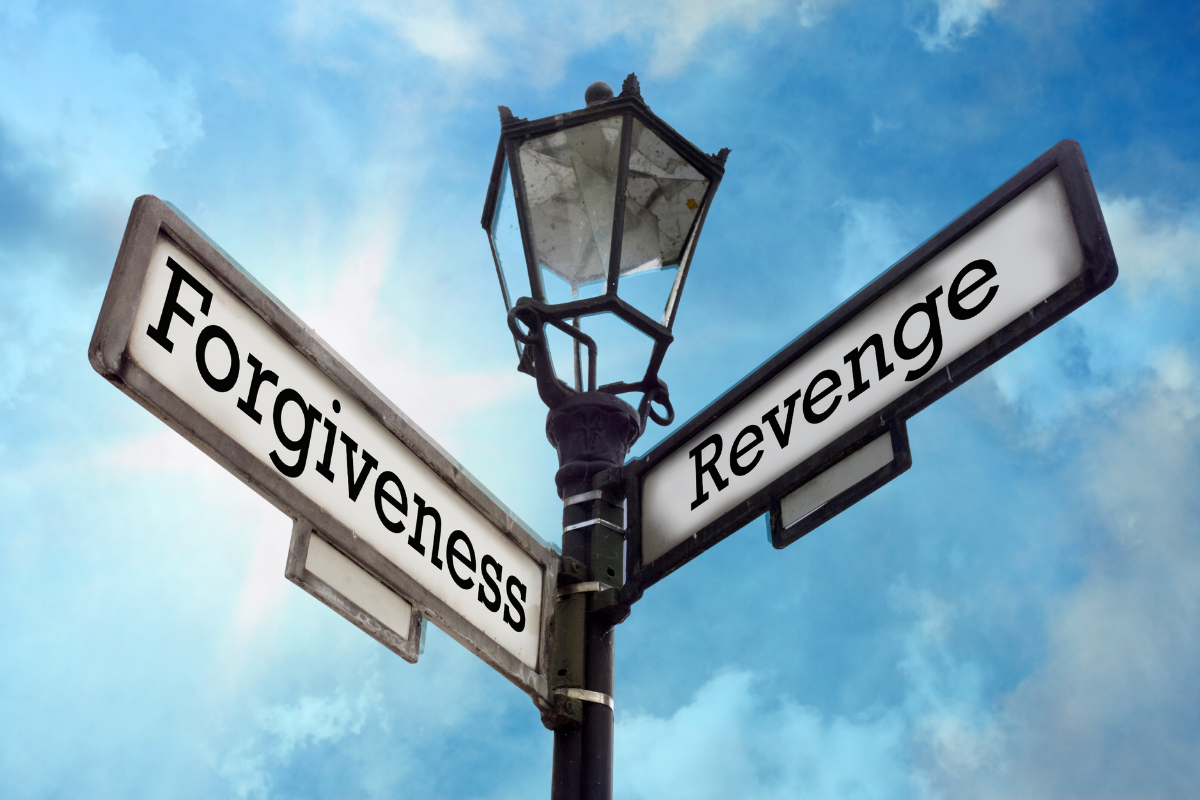“Forgiveness is the fragrance that the violet sheds on the heel that has crushed it” (Mark Twain).
Last month, we studied Divine Mercy. It is important to note that God’s mercy is not a relaxation of justice, but rather a free gift that works through justice. Consider your penance after confessing your sins. To fully appreciate the benefit of forgiveness, the penitent must also express sincere remorse, repent from the sinful behavior, and provide restitution for the transgression.
We can forgive, because we are forgiven first. Jesus Christ shows us the way: “When he was insulted, he returned no insult; when he suffered, he did not threaten; instead, he handed himself over to the one who judges justly” (1 Peter 2:23). It is not our place to judge the sinner. Rather, we trust in God. “Beloved, do not look for revenge but leave room for the wrath; for it is written, ‘Vengeance is mine, I will repay, says the Lord’” (Romans 12:19).
When an injustice is committed against us or others, we cannot change the past. However, we can take charge of the future by choosing how we react. We “conquer evil with good” (Romans 12:21) when we respond with mercy, forgiveness, and love. Evil loses power over us. We are freed from the victim mentality and begin to heal. We grow in grace by offering our trials and our suffering to God. Peace is restored.
Remember that God does not create evil. He permits it only to bring about a greater good. God’s plan involves us letting go of our grudges. Jesus explains that our forgiveness is not optional: “Then Peter approaching asked him, ‘Lord, if my brother sins against me, how often must I forgive him? As many as seven times?’ Jesus answered, ‘I say to you, not seven times but seventy-seven times’” (Matthew 18:21-22).
Just as forgiveness is a gift we give to ourselves for someone else’s wrongdoing, anger is a punishment we give to ourselves for somebody else’s mistake. When we choose anger and revenge, we are fighting evil with evil. We become trapped in a cycle of pain, bitterness, and resentment. It produces no good; it limits our holiness.
To understand what forgiveness is, we also acknowledge what forgiveness is not. Forgiveness is not necessarily forgetting. Forgiveness is not ignoring injustice and withholding reparation. Forgiveness is not condoning bad behavior. Forgiveness is not remaining in a dangerous situation and jeopardizing our safety. Rather, forgiveness is a distinctly Christian virtue. We choose to love despite being hurt. We try to love as God loves.
One way to overcome our hard feelings is to empathize with the person who wronged us. Learn to understand their perspective by walking in their shoes.
It is natural to mourn the losses we suffer. However, we are mindful that everything we have is a gift from God. As stewards of God’s creation, we recognize that we are caretakers—not owners—of God’s gifts. In that light, we detach ourselves from the things we lose. Let each trial be a lesson for us.
We continue our path toward forgiveness with positive posturing. By wiping our tears and smiling again, we begin to move beyond the past. Progressively and continually, we reach out to those who have wronged us with pleasant greetings, comforting gestures of goodwill, and acts of kindness. In the words of Saint John of the Cross: “Where there is no love, pour love in, and you will draw love out.” Over time, our responses grow in compassion and mercy.
Always, we pray. Pray for the conversion of sinners. Pray for the strength to overcome evil with good. Pray for the restoration of peace and justice. Pray in thanksgiving for the power of love. Pray with gratitude for the opportunity to demonstrate mercy in action. Pray for the grace to forgive others as God has forgiven us. God does not expect us to succeed without His help. After all, “to err is human, to forgive divine” (Alexander Pope).
If you have any suggestions on how to reconcile wrongdoing and practice forgiveness, please share them with the community. And be sure to visit our “Weekly Challenge” section throughout the month for more exercises in forgiveness.
Important Note: If you are a victim of abuse, please get help.
The State and National Domestic Violence Hotline Numbers Are:
New York State Domestic Violence 24 Hour Hotline (English & Español/Multi-language accessibility): 1-800-942-6906or 711 for Deaf or Hard of Hearing
National Domestic Violence 24-Hour Hotline 1-800-799-7233 or 1-800-787-3224 (TTY)
National Deaf Hotline Videophone 9am-5pm M-F 1-855-812-1001or deafhelp@thehotline.org.

